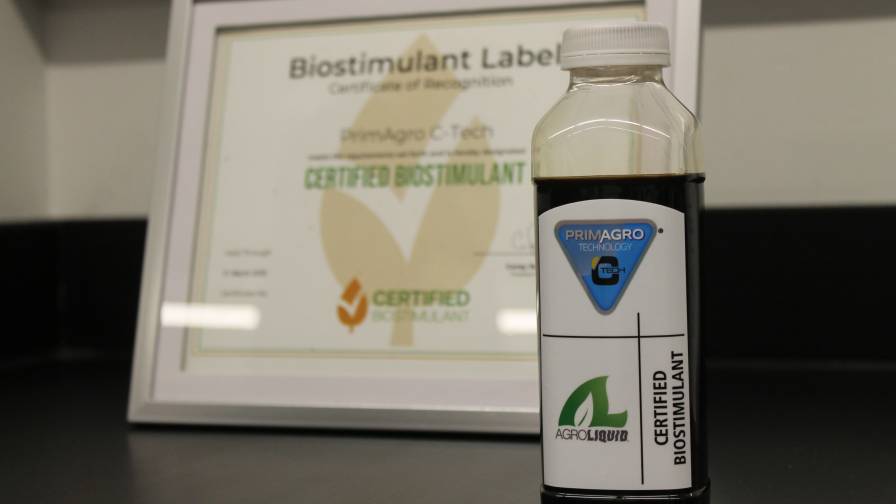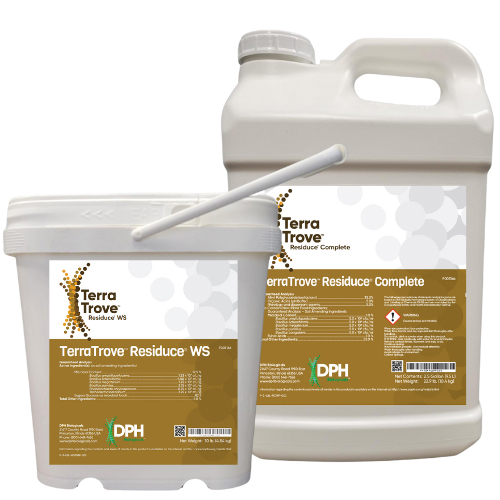Corn Rootworm Management Options Using Soil Insecticides
Although Bacillus thuringiensis (Bt) traits in corn have increased the convenience of insect control for growers, there are an increasing number of reports of corn rootworm (CRW) trait performance failures. More and more growers are looking at new and different solutions to control corn rootworms and other secondary pests.
This subject was the theme of CropLife Media Group’s latest webinar, “Maximizing CRW Hybrid Yields Using Corn Soil Insecticides,” presented by AMVAC Chemical Corp.’s Joe Short, Midwest region marketing manager, and Rich Porter, Midwest region product development manager.
A Changing Landscape
According to several university studies, as well as field reports from growers themselves, corn rootworm, a pest normally managed by seeds containing CRW tolerant traits, is again rearing its ugly head in high pressure, corn-on-corn fields throughout the Midwest.
Historically, Bt traits and seed treatments have made insect control more efficient and convenient for growers, but studies indicate trait performance failures are on the increase.
Most notably, researchers at Iowa State University recently confirmed the finding of resistance to the Cry3Bb1 protein in Western corn rootworm. In addition, reports in both Illinois and Nebraska have identified fields with greater than expected rootworm damage in corn with the Cry3Bb1 protein.
According to AMVAC, beginning in 2007, Illinois growers utilizing one of the many AMVAC insecticides in a SmartBox setup for refuge management began noticing advantages at harvest time when combining insecticide with a rootworm trait hybrid vs. simply using an untreated hybrid. This finding led to formal research at the university level to address the query: “Does an insecticide optimize yield of a rootworm trait hybrid?” Thus far the results have been encouraging, to say the least.
“Corn soil insecticides are still a very vital tool for corn production today and economic returns in the industry,” explained Short during the webinar.
Short went on to cite two main drivers that have likely increased growers interest in soil insecticides, among them the overall desire to maximize yield and return on every acre planted, as well as the aforementioned issues raised around controlling corn rootworm with traits and seed treatments alone.
“The price of the commodity, as well as the cost of production, has increased dramatically in the past couple years,” said Short. “Naturally, every grower wants to maximize yield on every acre they plant.”
A summary of eight university trials based in Illinois and Iowa from 2007-11 showed that the rootworm trait treated corn alone carried a Node Injury Rating of 0.84. When combining the trait along with one of the many AMVAC insecticides at either full or reduced (3/4 label) rates, that number plummeted to a 0.11 rating.
For comparison’s sake, AMVAC cited a 0.25 node injury rate or less as “desirable to optimize both standability and yields.”
“Yields are by far the number one thing we’re trying to optimize,” said Porter. “But (corn) standability is a huge benefit to the grower, and that’s something we see improve when using insecticides with a trait.”
In the same trial summary, the rootworm trait/insecticide combo showed 86% of roots with less than a 0.25 Node Injury Rating, while corn treated with the trait alone had only 20% of roots with an injury rating below the 0.25 threshold.
“That’s a huge benefit when you have roots or plants at risk,” said Porter. “Those corn plants need that extra protection.”
Benefits Of Combining Insecticides, Traits
Porter also presented six benefits of mixing AMVAC granular insecticides with rootworm trait hybrids, among them:
- Risk management tool.
- Improves consistency of control.
- IRM and IPM – multiple modes of action.
- Improves harvest efficiency.
- Nematode control with Counter 20G.
- Maximizes yield potential of seed at planting.
“This method improves the consistency of performance, and every plant on the acre counts,” said Porter. “Every root system counts when you’re trying to maximize yields.”
Having demonstrated the need for corn soil insecticides, AMVAC offers four products for growers depending on their individual needs.
- Aztec 4.67G and 2.1G, an insecticide for rootworm control that has demonstrated “consistent broadspectrum control of rootworm and secondary pests.”
- Counter 20G, the company’s only soil insecticide labeled for nematode control.
- SmartChoice 5G, which gives growers “flexibility on row spacings used – as low as 15-inch rows and twin rows.”
- Force 3G (Syngenta), which provides control of rootworm and secondary pests.
As for product handling needs, the company offers two options:
- The SmartBox System — a patented closed handling and application system that offers accurate product dispensing along with row size and planter flexibility.
- The Lock’n Load System — another patented closed handling system intended for planters with insecticide hoppers.
Both systems feature returnable containers and reduce user handling and exposure to the insecticide, keeping workers and the environment safe.
“We want to steward this properly,” said Short. “Close handling systems like the SmartBox system are a key element in product stewardship.”






